Bitter Springs - Interview
by John Clarkson
published: 23 / 2 / 2013
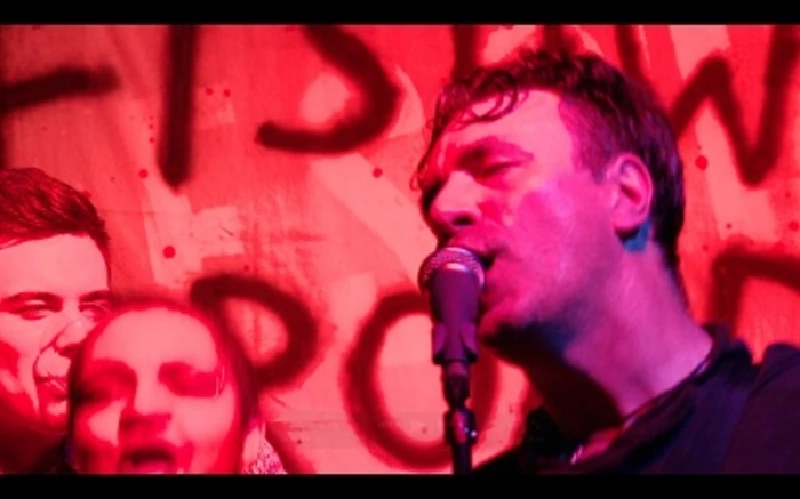
intro
John Clarkson chats to Simon Rivers from underrated London indie rockers the Bitter Springs about his group's new double CD and first album in seven years, 'Everyone's Cup of Tea'
The Bitter Springs are possibly London’s most undervalued cult band. Formed in the western suburb of Teddington in 1996 out of the remnants of another band Last Party, they have always remained off the radar, releasing music that is experimental, versatile and boldly defiant. While each new Bitter Springs’ release is eagerly awaited by their small but ardent fan base, they have, as other indie bands are hyped and then fall by the wayside, never been picked by upon by the musical community at large. They have for nearly two decades –more still if one considers the fourteen years that Last Party were together before then – continued to put out music entirely of their own terms. The Bitter Springs‘ prime focus is the sometimes fantastical, sometimes realistic, and usually offbeat lyrics of front man and guitarist, Simon Rivers, who, after the departure of bassist Daniel Ashkenazy in 2011, is now the group’s only original member. Around his words, the other five members of the Bitter Springs – Paul “Wizard” Baker (piano/keyboards/vocals), Paul McGrath (drums, accordion, vocals); Phil Martin (violin/guitar/vocals); Nick Brown (guitar) and Andy Deevey (bass) – weave the music, which includes elements of punk, folk, vaudeville, country and electronica. There were two Last Party albums, ‘Porky’s Range’ (1990) and ‘Love Handles’ (1996), both of which came out on the group’s own Harvey Records. In the early years of the Bitter Springs, there were five albums in rapid fire succession, ‘From the Parish of Arthritis’ (Dishy Records, 1997); ‘Five Dive Filming This Lark’ (Vespertine, 1998); ‘Benny Hill’s Wardrobe’ (Vespertine, 1999); ‘The Best Bakers on the Island’ (Acuarela, 2000) and ‘Suburban Crimes of Every Happiness’ (Dishy, 2001). Recent years have found Rivers resurrecting the Harvey label, and Bitter Springs’ releases becoming less of a regular fixture. ‘Everyone’s Cup of Tea’, their latest album, which came out in February, and follows on from their 2006 sixth record, ‘That Sentimental Slush’, is their first new album in nearly seven years. It is a double CD that expands to twenty-six tracks, and, typically uncompromising, show off the massive range and eclecticity of Rivers’ and the other Bitter Springs’ vision. The first CD, the self-titled ‘Everyone’s Cup of Tea’, consists of rollicking and at least on-the-surface largely upbeat indie electric guitar and keyboard anthems, while the second CD, ‘The Bitter Springs Destroyed My Life’ is subtler and darker, and features acoustic and electronic tracks. Amongst the songs on the first CD there is ‘And Even Now’, a disco anthem, which the Bitter Springs released originally as a download single in several different mixes; ‘Hail the Lifeboat Man’, about the trials and tribulations of its underdog title character; ‘TV Tears’, about reality television, and ‘The Life and Not Entirely Uneventful Times of a McAlpine Fusilier’, which tells of the Irish construction workers who came to mainland Britain to build the roads and motorways in the 1940s and 50s. The songs on the second CD include four songs which Rivers has co-written with Dollboy’s Olly Cherer, and ‘Free to Kill Again’, which is about a schizophrenic who having been given care in the community hides his pills and finds his thoughts turning to murder. Pennyblackmusic, who are long term fans of the Bitter Springs, spoke to Simon Rivers –in what he revealed was his first phone interview in ten years – about ‘Everyone’s Cup of Tea’. PB: When we last interviewed you in 2007, you said that you were planning an album called ‘Lighten Up Volume 9’ which would consist of several new Bitter Springs songs plus various rarities from the Last Party and Bitter Springs back catalogue. At what point did that idea go on hold and that of doing ‘Everyone’s Cup of Tea’ and a double CD begin? SR: That album didn’t really go away. It just changed its name. I change the titles of albums all the time and all the way up until I finish them. That would have been the idea I had for the title at the time. ‘Everyone’s Cup of Tea’ is really in many ways that same record. It certainly features a lot of the same tracks. It just took a lot longer to make than we expected. PB: You were also planning on doing an album after that which consisted of a succession of songs about a family. Has that idea gone on hold? SR: ‘And Even Now’, which is on ‘Everyone’s Cup of Tea’, was one of the songs that was going to be on that same family album, which will now not be made. As it takes us so long to record songs and we don’t really have the resources to get everything done as quickly as we would like, a lot of the ideas for songs and albums change as we go along. When we went into record ‘And Even Now’, I had the brilliant idea of doing six or seven different versions of it, which added another six months onto everything else. The ‘And Even Now’ EP was just a download. None of it came out physically until the version of ‘And Even Now’ which appears on ‘Everyone’s Cup of Tea’. We got so wrapped up in doing ‘And Even Now’ that that delayed the album. When I get an idea, I often just do it. I forget how long it is going to take. It does annoy people when it takes so long. That track is one of those songs that would have been on the family album. I can’t actually remember what the album was going to be called now (Laughs). PB: The first five Bitter Springs albums came out in very quick succession over a five year period between 1997 and 2001, and then there was a gap of five years before ‘That Sentimental Slush’, and then another gap of nearly seven years before ‘Everyone’s Cup of Tea’. How much of that is down to getting sidetracked and getting new ideas, and how much of that is down to you deciding to self-release things and the money not being there now while it might have been before when you were signed to other labels? SR: It is largely down to the self-release thing. We are always working behind most of the time, and so that is why end up with a back catalogue of ideas. We could have done ‘Everyone’s Cup of Tea’ three years ago, and have made another album since then if we had had more time and more money. While we always have the intentions of doing more stuff, self-finance usually pops up to stop us. PB: Both yourself and the Band of Holy Joy, who you are great friends with, have put out sprawling years-in-the-making double albums within the space of a month from each other. You have both been making music for a similar length of time and about thirty years. Do you think that is just a coincidence? SR: I do think that is a coincidence. They are probably in a similar position to us though. You end up following your instincts. I don’t really think about why I have done things the way I have until someone asks me about it. It is not something that I go around thinking about. The main thing I think about it is each song and how we will work on it, and then how we are going work on the next one. ‘Hail the Lifeboat Man’ from the new album is a good example of that. It went through so many different versions. It used to have a comedy sketch at the beginning of it, and it went on for about ten minutes. In the end I took away the comedy element because I wanted it to be serious, although funny at the same time. I didn’t want anyone to think that we were taking the piss out of the lifeboat man, although we are a little bit, but more in a day-to-day rather than a nasty kind of way. I try to make a lot of my songs funny, but in an everyday way. PB: You poke fun in your songs more at the absurdities of life than particular people, don’t you? SR: I think that is true. I approach it sometimes more as if I am a comedian or as writing a book, rather than as a song. I am not really into songs about boy-girl stuff. All the people that I like sing about the stuff that they know about. That is what I like in songs. PB: You put out five singles from ‘Everyone’s Cup of Tea’ before the album came out. Was that just to simply remind people that in the absence of a full CD that you were still out there and hadn’t split up? SR: Yeah, that was definitely the reason, and to remind ourselves as well (Laughs). We thought, “It is taking forever. By the time we have got the album finished, no one will even remember who we were.” It was to keep interest going. PB: The first CD is the optimistic-sounding ‘Everyone’s Cup of Tea’ and the second album is the much bleaker-titled ‘The Bitter Springs Destroyed My Life’. Do you see there being a real Yin/Yang element to these two records? SR: Yeah, definitely. Sometimes a lot of the things that people like about us in our songs are the things that other people don’t like about us and which put them off, like, for example, there are a lot of words or we don’t always worry about choruses. When we did ‘And Even Now’, which was a really catchy one, even people who didn’t like us started to like us. You can’t please everyone though, and that’s where the idea of ‘Everyone’s Cup of Tea’ came up. We obviously ain’t everyone’s cup of tea. No one ever is. It was another joke as usual (Laughs). I chose ‘The Bitter Springs Destroyed My Life’ as the title of the second CD because some of the songs on the album are about the struggle to make it. I decided to call it that as a joke title to say that the one thing that has destroyed my life is my life. I wouldn’t have had much of a life without the Bitter Springs though, and that too is where the Yin and Yang comes in. PB: When we last spoke to you, you had six computer files with fifty songs each on them, the majority of which were unrecorded. How many of the songs on ‘Everyone’s Cup of Tea’ were old songs that you have had around for years and how many of them were songs that were more recently written? Was there much of a balance? SR: It was a real combination. We started the album by recording stuff like ‘Lifeboat Man’ and ‘McAlpine’s Fusiliers’ with a friend of mine’s son for his degree course in music. We thought that would be a nice, cheap way of recording, but it ended up taking us a really long time to do. We ended up doing it in three different studios. Some of the songs, however, go back even further than that and to long before the seven years that ‘Everyone’s Cup of Tea’ eventually took. Then other things like ‘Snowflakes in June’, which was the first one that we did after Dan left and which has no bass, were done at the last minute and really late on. That was the last track. PB: Four of the songs on ‘The Bitter Springs Destroyed My Life’ – ‘Powerless’, ‘Purely Medicinal’, ‘Undercover’ and ‘Sirens Every Day’ - are co-writes between yourself and Oliver Cherer from Dollboy. How did those come about? SR: I am friends with Ollie and we had done stuff before together. I saw him play live, and he did some instrumentals, and I said to him afterwards, “Are they going to be on your next record?” He said, “No. I have recorded them, but I am not going to put them now,” and I said, “if you are not going to use them, send them over to me and I will put words on them.” I have done that before with Piano Magic as well. So he sent them to me, and this was six or seven years ago. ‘Sirens Every Day’ from start to finish probably took about six or seven years to fit the words in and change them, to decide how we wanted them and to chop up his tunes, although we didn’t chop up his tunes too much in the end. He never heard them while I was working on them, and when we finished the album I sent him it, and said, “I have finally finished your songs now. They are on the new album” (Laughs). PB: ‘And Even Now’ captures the joys and frustrations of doing something creative for a long, long time and sticking with against the odds. Was that primarily about being in the Bitter Springs and Last Party before that? SR: Yeah, it was. The lyrics came together quite quickly for that one which is always nice. We were playing a gig one night several years ago, and the idea for the tune came from one of the bands that we were doing the gig with. I can’t remember who it was playing with us – It might have been Comet Gain - but they were soundchecking and their drummer was playing these syncopated disco drums, and I thought, “I would like to do a song to that sort of beat.” Musically it is like Abba’s ‘Dancing Queen’ or Blondie’s Heart of Glass’. It has that kind of slow beat, but lyric-wise it is my sort of ‘My Way’, this sad broken fool going on about how he did it his way or tried to and didn’t really. PB: ‘Harry Hippie’, the one cover on the album and which is about a junkie, was written by Jim Ford. Who is he? SR: I don’t really know much about him, but I believe that he was a country singer. It was originally covered by Bobby Womack and I first heard it on a ‘Best of’ cassette by him. It has got such a great melody to it and it is nice to sing, but I decided to make it more localised and relocated it to the streets where I live just outside London. Its theme is a universal subject. When Bobby Womack did it, I believe that he was singing about his own brother, who had got himself in trouble with drugs. It struck a chord with me because I have known people over the years that have dabbled in things like that, or gone off the rails or missing from life. You don’t have to walk around London anymore to see that. You can walk around anywhere and see it. PB: ‘The Life and Not Entirely Uneventful Times of a McAlpine Fusilier’ captures the hardened life of the Irish immigrants who came over to mainland Britain in the 1940s and 1950s. Where did you first find out about them? SR: My dad was a builder and a bricklayer, and I also worked for a building company for a while when I left school and with a few Irish people. We had to do a lot of digging, laying drains and trenches and things like that, and it is hard work, and some of the Irish people I used to work with used to be like human mechanical diggers. I had always wanted to write a song about them. McAlpine was one those names I was aware of when I was growing up. I was driving down the M3 one day in the New Forest, and there is a massive chunk I think somewhere around Basingstoke where the McAlpine Fusiliers had dug through a hill, and that when I married the two together, and I thought, “Of course, I can write a song about the people that have built our motorways in England.” I started researching it and so that is where that idea came from. PB: ‘TV Tears’ nails the absolute horror of reality television and programmes like ‘The Jeremy Kyle Show’. It captures many people’s desperation for their fifteen minutes of fame, no matter what it costs. Was that what you were aiming for that? SR: Yeah. I can’t watch those programmes. It is not the right thing to do (Laughs). You don’t stick things like that on the telly and have the host start yelling at people. You know that half of the people on there have concocted it in the pub one night, and they have said, “You be the villain in this and I will be the goodie.” I don’t know much they pay them (Laughs), but it is a way to make money, isn’t it? Then you have got people with proper problems and I don’t think sitting on the telly is the way they should solve them, but that is the way some people think. That was what ‘TV Tears’ was about in my usual jokey way. It is the last place that you should want to meet the relatives or somebody that you haven’t seen for the past twenty years in front of a TV camera and with all these people talking at you. PB: ‘Free to Kill Again’ is the most disturbing song on the whole album. What inspired that? SR: It was meant to be disturbing (Laughs). It comes from a similar place to ‘Harry Hippie’ and is about that idea of dislocation. A lot of it came from walking around London and seeing these people who are clearly disturbed. They used to be everywhere and they seem to be disappearing from the world or around here. That is what that is about, someone who is in that state which anyone can get into - It is not exclusive - and realising that we all have got the potential to be a killer. A few months ago I lost my temper really badly and I didn’t know what I was doing. It hasn’t happened as badly as that for years, but I know people who are on certain tablets for one thing or another, and it is about what might happen if you stopped taking the tablets. That track was actually recorded for a solo album which never happened. I started doing a solo album with Glenn Johnson and Jerome Tcherneyen from Piano Magic, but the discs were lost and ‘Free to Kill Again’ was the only thing that I salvaged it from it. There was some good stuff on there. PB: And finally what other plans have got for the future? SR: We are going to be focusing on 7” singles and downloads for a while. We are starting to record in One Cat, this new place in Brixton with Jon Clayton, a young engineer, who is really good, and I wanted to go there because I have seen him working with Vic Godard and Johny Brown from the Band of Holy Joy, who also record their records there. We mastered ‘Everyone’s Cup of Tea’ there. It was all part of the process of getting to know him and him getting to know our music as well, so that when we went there we would all be on the same page, We have got the two songs for the first single already done. The A-side, which we have been doing live for quite a while, is ‘Portrait of a Marriage’ and the other side, the B side, is called ‘Let’s Do Something Good Together’. It is the flip side of the coin to the people who have been the subject of the first song and is about another part of the same marriage (Laughs). ‘Portrait of a Marriage’ was taken from the Ingmar Bergman film, ‘Scenes of a Marriage’, and as is my usual way I got the title mixed up and thought that it was called ‘Portrait of a Marriage’ (Laughs) We are hoping to play some gigs as well over the next few months, but our main thing at the moment is to focus on recording. PB: Thank you.
Band Links:-
http://www.thebittersprings.com/https://www.facebook.com/TheBitterSprings/
Picture Gallery:-
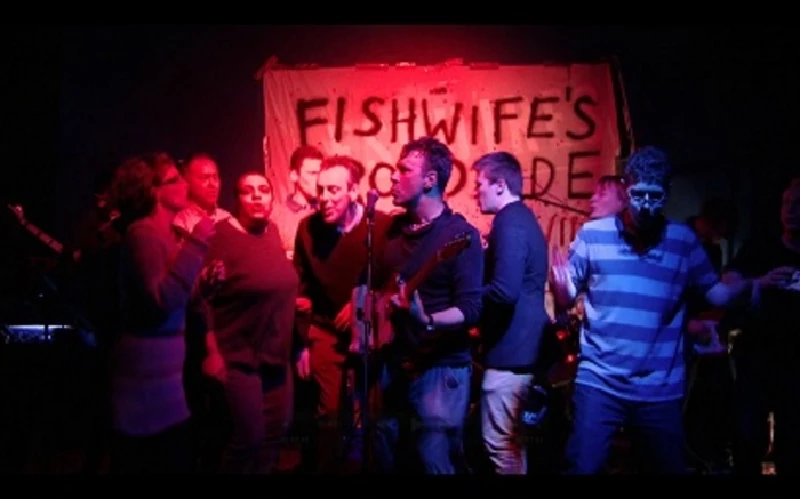
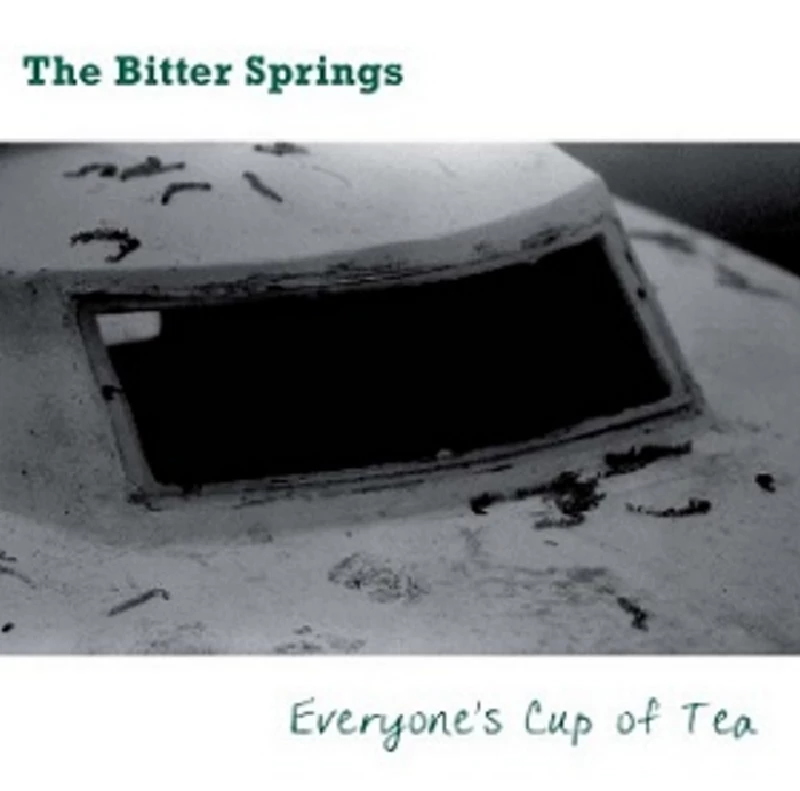
interviews |
|
Interview (2019) |
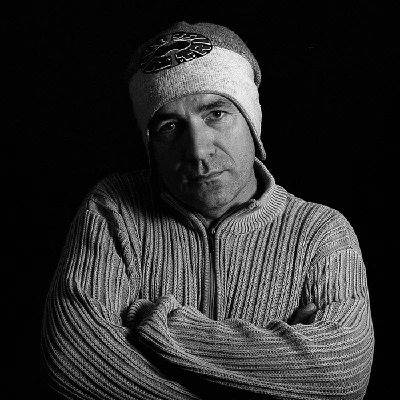
|
| In our sixth interview with him, Simon Rivers, the frontman with the West London alt. rock band the Bitter Springs, talks to John Clarkson about their forthcoming ninth album, 'The Odd Shower'. |
| Interview (2016) |
| Interview (2007) |
| Interview with Simon Rivers (2003) |
live reviews |
|
Bull and Gate, London, 7/1/2011 |
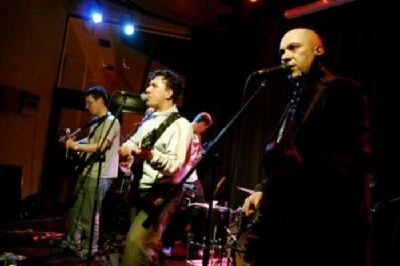
|
| Neil Palmer sees the often under rated Bitter Springs play a shortened, but life affirming set of their unique brand of indie rock at the Bull and Gate in London |
| 12 Bar Club, London, 1/5/2007 |
favourite album |
|
(Suburban Crimes of) Everyday Happiness (2021) |
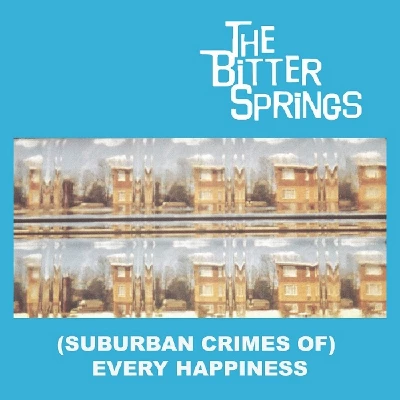
|
| In our 'Re:View' section, in which we look back at albums from the past, Kimberly Bright finds that the Bitter Springs’ magnificent remastered 2001 masterpiece '(Suburban Crimes of) Every Happiness' hasn’t aged a day. |
| That Sentimental Slush (2006) |
soundcloud
reviews |
|
Cuttlefish and Love's Remains (2016) |
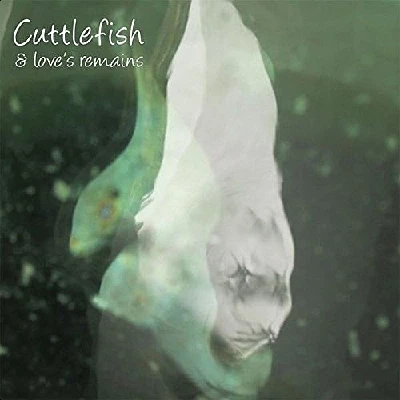
|
| Challenging but thought-provoking and highly rewarding eighth album from West London-based band, the Bitter Springs |
| Gary Glitter Fan Club Convention (2011) |
| TV Tears (2011) |
| My Life as a Dog in a Pigsty (2010) |
| And Even Now (2009) |
| Poor Trace (2006) |
| Firm Family Favourites (2006) |
most viewed articles
current edition
Carl Ewens - David Bowie 1964 to 1982 On Track: Every Album, Every SongArmory Show - Interview with Richard Jobson
John McKay - Interview
Colin Blunstone - Thalia Hall, Chicago, 16/7/2025
Billie Eilish - O2 Arena, London, 10/7/2025
Bathers - Photoscapes 1
Visor Fest - Valencia, Spain, 26/9/2025...27/9/2025
Loft - Interview
Sir Tim Rice - Interview
Robert Forster - Interview
previous editions
Manic Street Preachers - (Gig of a Lifetime) Millennium Stadium, Cardiff, December 1999Heavenly - P.U.N.K. Girl EP
Beautiful South - Ten Songs That Made Me Love...
Peter Perrett - In Dreams Begin Responsibilities Interview Part One
Boomtown Rats - Ten Songs That Made Me Love....
Oasis - Oasis, Earl's Court, London, 1995
Trudie Myerscough-Harris - Interview
Coldplay - Wembley Arena. London, 16/8/2022
Prolapse - Interview
Pixies - Ten Songs That Made Me Love...
most viewed reviews
current edition
Davey Woodward - Mumbo in the JumboSick Man of Europe - The Sick Man of Europe
Lucy Spraggan - Other Sides of the Moon
Suzanne Vega - Flying With Angels
Amy Macdonald - Is This What You've Been Waiting For?
Phew, Erika Kobayashi,, Dieter Moebius - Radium Girls
Bush - I Beat Loneliness
Blueboy - 2
Alice Cooper - The Revenge of Alice Cooper
Cynthia Erivo - I Forgive You
related articles |
|
Oldfield Youth Club: Interview (2018 |
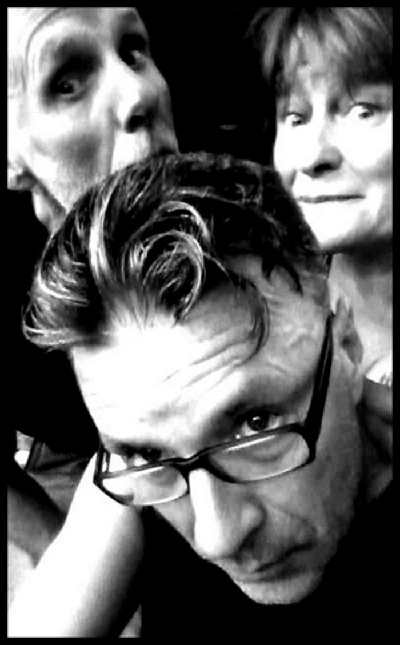
|
| Simon Rivers, the front man with the Bitter Springs, talks to John Clarkson about his decision to form also another band Oldfield Youth Club, and both groups’ forthcoming appearance at the Pennyblackmusic 20th Anniversary gig at the Water Rats in London. |
| Band of Holy Joy: Feature (2015) |
Pennyblackmusic Regular Contributors
Adrian Janes
Amanda J. Window
Andrew Twambley
Anthony Dhanendran
Benjamin Howarth
Cila Warncke
Daniel Cressey
Darren Aston
Dastardly
Dave Goodwin
Denzil Watson
Dominic B. Simpson
Eoghan Lyng
Fiona Hutchings
Harry Sherriff
Helen Tipping
Jamie Rowland
John Clarkson
Julie Cruickshank
Kimberly Bright
Lisa Torem
Maarten Schiethart